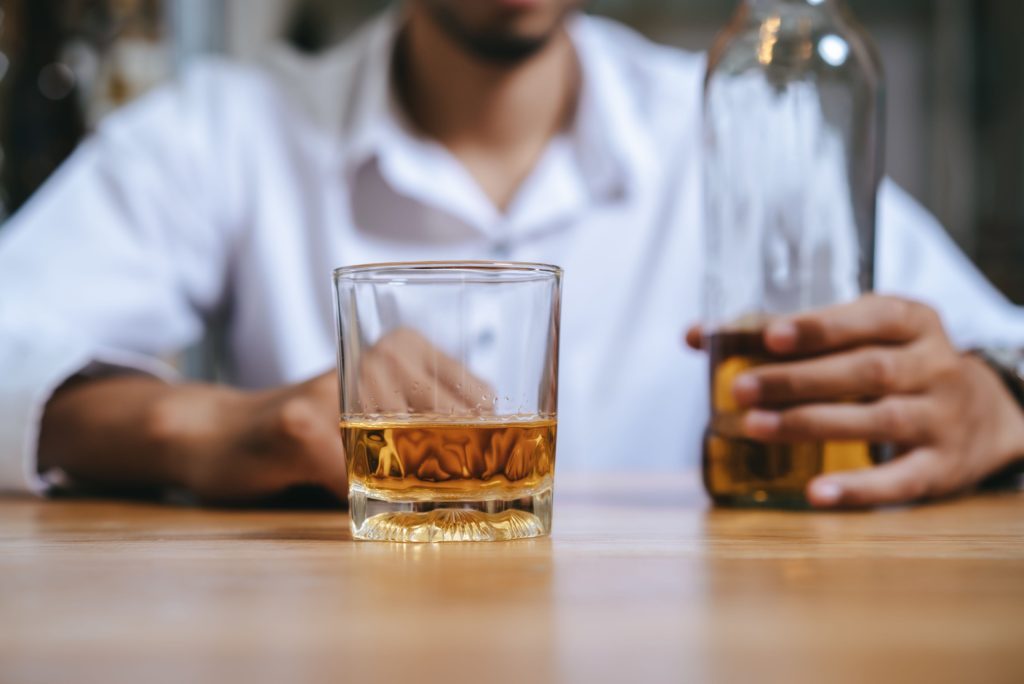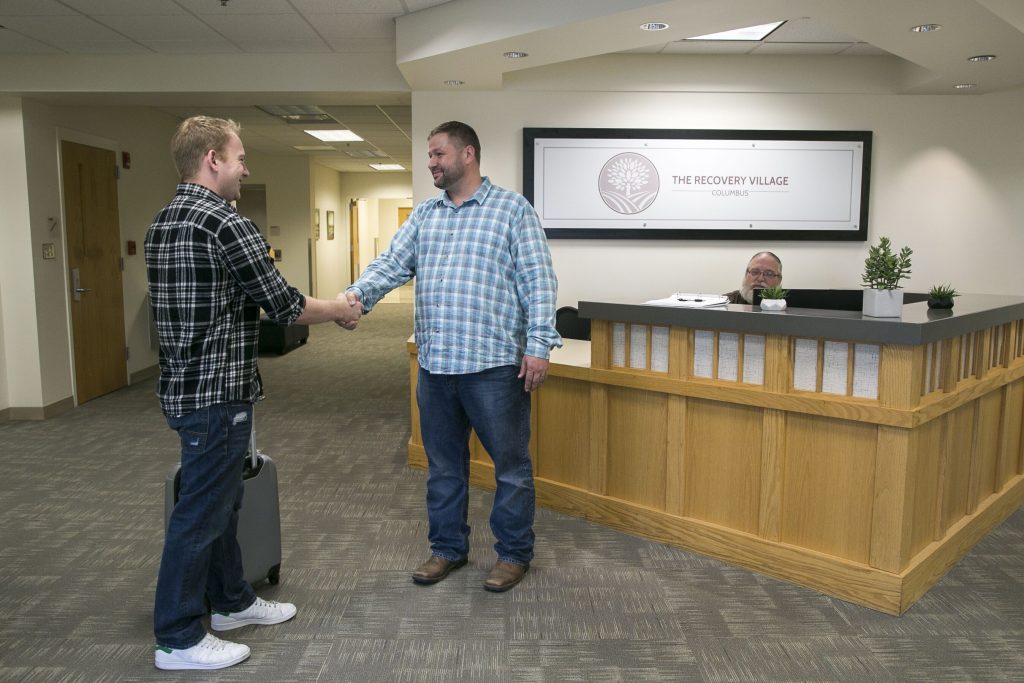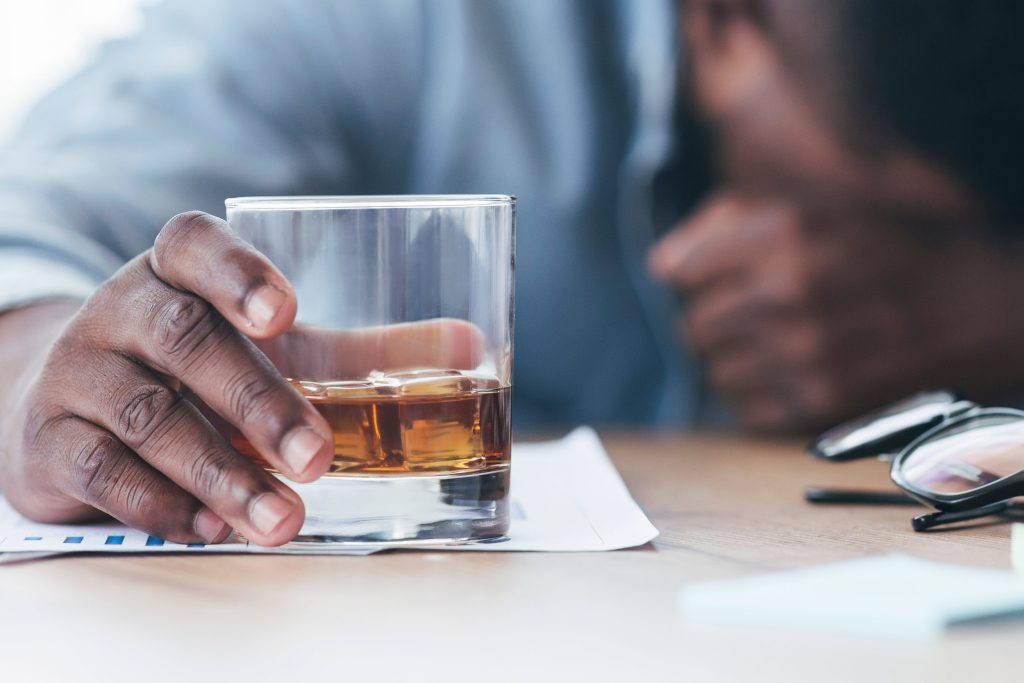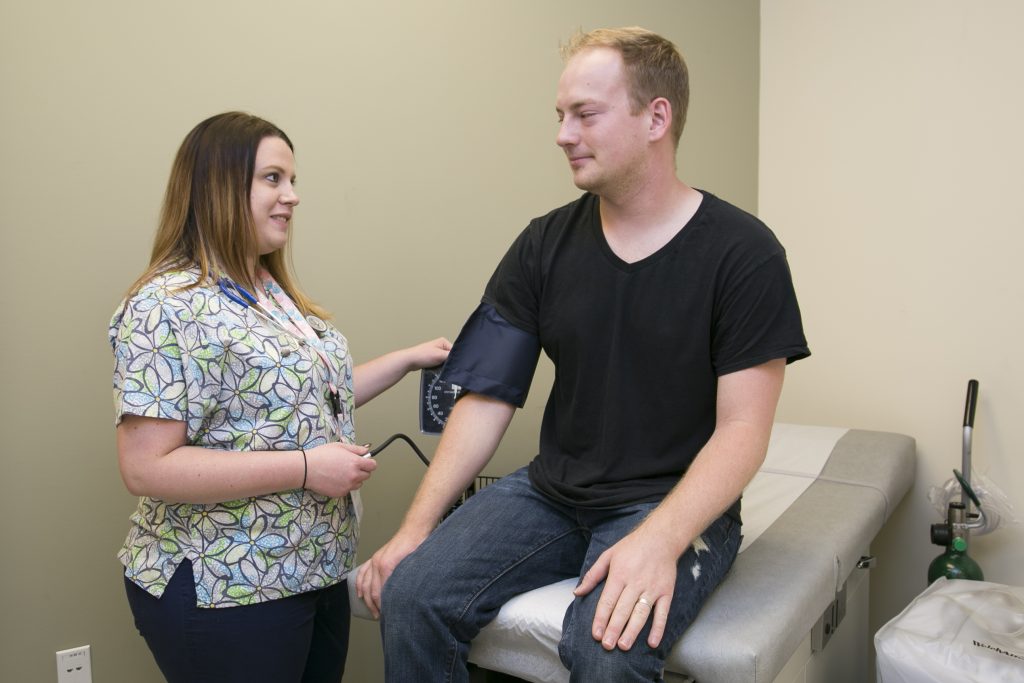Alcohol Rehab and Detox in Columbus, Ohio
Written by Melissa Carmona
& Medically Reviewed by Dr. Kevin Wandler, MD
Medically Reviewed
Last updated: 11/09/2022
It can be hard to take the first step toward alcohol addiction recovery, but compassionate, evidence-based treatment at The Recovery Village Columbus makes it easier.
Alcohol addiction is a disease that few people expect themselves to develop, yet many do. A person may believe they feel happier, less stressed and more fun when they drink, so they start using alcohol to cope with negative feelings. Eventually, their mind will start to crave the substance, and their body will depend on it to function. It can progress to the point where a person may be in physical and mental pain if there isn’t alcohol in their system.
Hundreds of thousands of Ohioans struggle with alcohol addiction every year. Nearly 531,000 residents had an alcohol use disorder (AUD) in 2017; of these, around 494,000 needed treatment but did not receive it.
Signs That It’s Time for Help
It can be scary to take an honest look at your drinking habits, and it’s even scarier to admit you might have an unhealthy relationship with alcohol. If you’re wondering whether you might be struggling with alcohol use, the key signs of addiction can include:
- Drinking even though it hurts your physical or mental health
- Losing interest in relationships with family and friends
- Losing interest in hobbies or activities you used to enjoy
- Dedicating a lot of time to drinking or recovering from drinking
- Hiding your drinking or lying about it
- Drinking alone, frequently or early in the day
- Missing work, school or important events due to drinking
- Lacking control over the amount or frequency of drinking
- Engaging in dangerous or risky behaviors
- Constantly thinking about when you’ll get to drink next
- Trying to quit drinking but being unsuccessful
See Related: Benefits of Quitting Alcohol
Don’t Face Alcohol Withdrawal Alone
Addiction treatment facilities help people begin the path to lifelong recovery, but they also address the more dangerous aspects of quitting alcohol. People may experience uncomfortable withdrawal symptoms as their body detoxes from alcohol.
Especially in those with severe alcohol addiction, these symptoms can be life-threatening. Detox programs reduce these risks to make the withdrawal process safer and more comfortable for clients.
Alcohol withdrawal symptoms may include:
- Anxiety, depression and mood changes
- Restlessness
- Headaches
- Nausea and vomiting
- Rapid heart rate
- Clammy skin
- Sweating
- Lack of energy
People with more severe alcohol addictions can have more extreme symptoms, such as:
- Delirium tremens (which can be fatal)
- Grand mal seizures
- Hallucinations
- Full body tremors
- Confusion
We offer a safe, comfortable detox experience.
Safe, Professional Detox and Treatment in Columbus
At The Recovery Village Columbus, we believe in an all-encompassing approach to treatment. Effective recovery requires addressing the underlying causes of a person’s substance use — not just their addiction.
Ongoing support is also an important factor in success, which is why we provide aftercare programs, alumni support and other resources that support lifelong health and recovery. Our ultimate goal is to help each client repair their lives and transition back into their communities without needing to rely on substances.
The AUD Treatment Process
Our evidence-based approach to treatment has helped many people end their relationship with alcohol and find healthier ways to cope with life’s challenges. The general treatment process is:
- Intake: We figure out what type of treatment the client requires, how severe their addiction is and what specific needs they may have.
- Detox: A team of medical staff monitors the client during the withdrawal process, providing support as needed to help relieve uncomfortable symptoms.
- Rehabilitation: Our addiction experts help clients address their substance use, learn strategies for avoiding relapse and discover healthier ways to deal with difficult circumstances.
- Aftercare: We routinely check in with clients to monitor progress, address new concerns and provide ongoing support throughout recovery.
Types of Treatment
Clients may go through a variety of different treatment programs, depending on the severity of their addiction and the progress they make. Stages of treatment at The Recovery Village Columbus include:
- Detox: Most clients begin the treatment process with detox, which helps them remove alcohol and other substances from their system before moving on to inpatient care.
- Inpatient care: During inpatient care, clients live onsite and attend group and individual therapy to address the underlying causes of addiction and help people learn how to live without alcohol.
- Partial Hospitalization Program (PHP): PHP is the next step after inpatient care, offering clients more autonomy and independence while gaining critical skills for recovery. Clients in PHP programs often still live onsite.
- Intensive Outpatient Program (IOP): IOP is in between inpatient and outpatient care. Clients transition to living offsite but participate in more hours of treatment than in traditional outpatient programs.
- Outpatient care: When a client begins to feel even more comfortable with recovery, they may transition to outpatient care and spend time adapting to their new sober lifestyle. In this program, clients live offsite but return to campus for treatment regularly.
- Teletherapy: Telehealth support makes therapy and addiction counseling more accessible than ever. It can be especially helpful for clients to continue therapy or counseling after completing a rehab stay.
- Aftercare: After on-campus treatment ends, clients begin the aftercare program. Aftercare involves a variety of support tools that promote long-term recovery, including routine check-ins, alumni events, support groups, relapse prevention plans and much more.
Did you know?
Your insurance may cover the cost of detox.
The Components of an Effective Treatment Program
It’s not enough to just stop drinking alcohol. The same problems, feelings and situations that led someone to drink in the first place still exist. Effective treatment programs like The Recovery Village Columbus offer clients:
- Licensed and accredited facilities and staff
- Evidence-based care that uses the latest in treatment techniques
- Personalized treatment plans designed around each client
- Dual diagnosis treatment to treat any co-occurring mental health conditions
- Dedicated treatment designed for first responders
- Proven counseling techniques, including cognitive behavioral therapy, family therapy, teletherapy and more
- 24/7 support from licensed physicians, nurses, therapists and other behavioral health professionals
- Weekly Recovery Compass to track your progress and adjust your treatment in real time
- Holistic care, including recreational therapies like art and yoga
- Comfortable rooms and amenities to support healing
- An in-network treatment provider with most national and local insurance companies
Top Reads About Alcohol Addiction

How Long Does Alcohol Stay In your System?
The time it takes for alcohol to have an effect depends on a variety of factors and will be… Read More

Alcohol Addiction Treatment in Ohio
If you can’t seem to stop drinking, you’re not alone. Let our experts help you heal… Read More

Am I an Alcoholic?
Knowing the signs of alcohol addiction can help you identify whether you or a loved one may be at… Read More

Does Alcohol Affect the Kidneys?
Alcohol causes dehydration, which decreases blood flow to the kidneys and makes it more difficult… Read More

Understanding Alcoholism and Finding Resources for Alcohol Addiction
This resource guide is an overview of the information currently available on alcohol use and abuse… Read More
View Sources
Substance Abuse and Mental Health Services Administration. “OHIO – National Survey on Drug Use and Health: 2016-2017.” 2017. Accessed October 5, 2021.
National Institute on Drug Abuse. “Principles of Drug Addiction Treatment: […]uide (Third Edition).” January 2018. Accessed October 5, 2021.
Authorship


